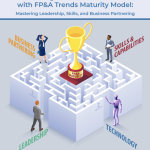On April 23, 2024, Amsterdam hosted another gathering of FP&A professionals. The event took place at Spaces Herengracht and brought together 31 senior finance leaders from top-tier organisations: Stryker, Booking.com, Danone, Heineken, AkzoNobel, AON Netherlands, Under Armour, Kraft Heinz, and more. This event focused on the FP&A Trends Maturity Model, a key framework for improving FP&A capabilities. Not surprisingly, this topic resonated deeply with the participants, given the current landscape and fast evolution of the FP&A profession. The Amsterdam FP&A Board meeting was designed to foster discussions on the latest trends and future directions in FP&A.
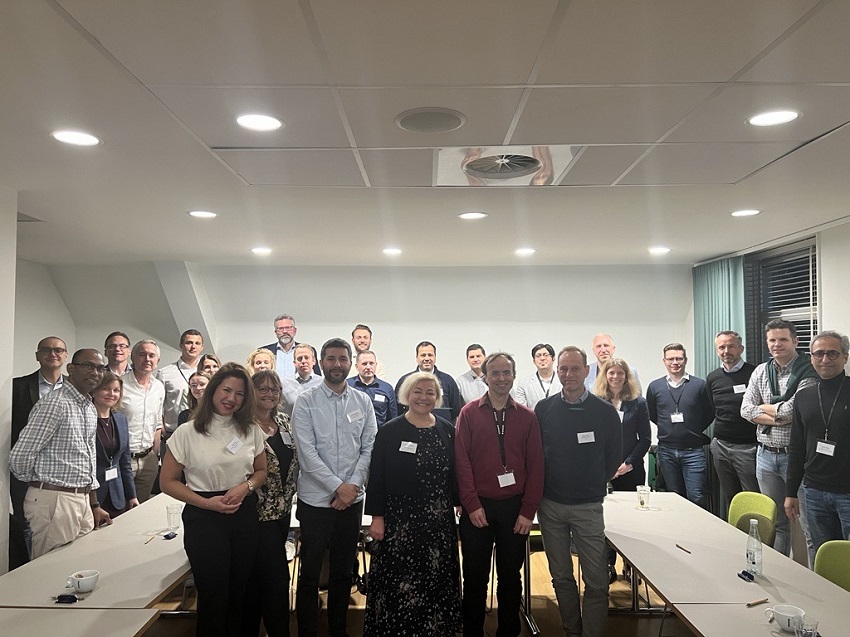
Figure 1: Amsterdam FP&A Board №14 Participants, April 2024
The event was sponsored by OneStream Software. IWG and Robert Walters provided substantial support during the event preparations.
Key Discussions and Insights
The evening's discussions were comprehensive and enlightening, covering a range of topics critical to the evolution of FP&A functions. A significant part of the meeting was dedicated to identifying and analysing the obstacles that can impede FP&A transformation.
Challenges in FP&A Transformation
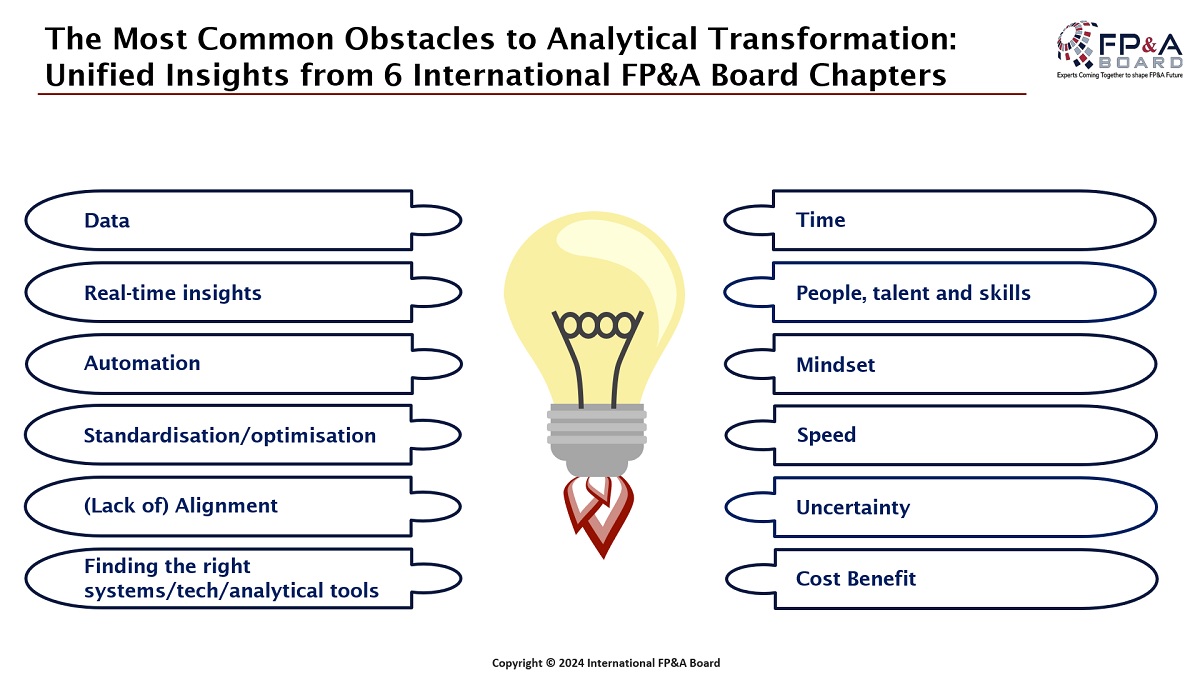
Figure 2
One of the central themes that emerged from the discussions was the array of challenges faced by FP&A teams in their transformation efforts. These challenges were categorised into three primary areas: Change Management, data management, and talent attraction.
Change Management
The participants emphasised the importance of effective Change Management. Transforming FP&A functions requires not just a shift in processes and tools but also a change in mindset. There was a consensus that management buy-in is crucial for successful transformation. Leadership must champion the change, setting the tone for the rest of the company and ensuring the necessary resources and support are available.
Data Management
Data was highlighted as a cornerstone of effective FP&A. Poor data quality and fragmented ERP systems were identified as significant barriers. Participants agreed that agreement on the granularity of data, as well as its readiness, is essential. A well-designed data model that is scalable and adaptable can greatly enhance the efficiency and effectiveness of the FP&A function.
Talent Attraction
Attracting and retaining talent with the right skill set is a critical component of FP&A transformation. The evolving landscape of FP&A requires professionals who are not only adept at traditional financial analysis but also skilled in technologies, influencing, and data architecture. Addressing skill gaps within the team and advocating for FP&A transformation within the organisation are essential steps in building a robust FP&A function.
The Role of Technology
Technology, particularly Artificial Intelligence (AI)/Machine Learning (ML), was another focal point of the discussions. The Dutch chapter of the FP&A Board emphasised that while AI holds significant potential for enhancing FP&A capabilities, there is still a steep learning curve. The participants likened their current use of AI to a child learning to walk – full of potential but requiring careful guidance and development.
Implementing integrated planning tools and data-driven tools that allow for flexibility was identified as critical for advancing FP&A functions to the leading stage. The forum explored the potential of driver-based models and ML for improving forecasting and decision-making. However, the need for a strong foundation in data and system integration was reiterated as a prerequisite for leveraging these advanced technologies effectively.
The FP&A Trends Group Maturity Model
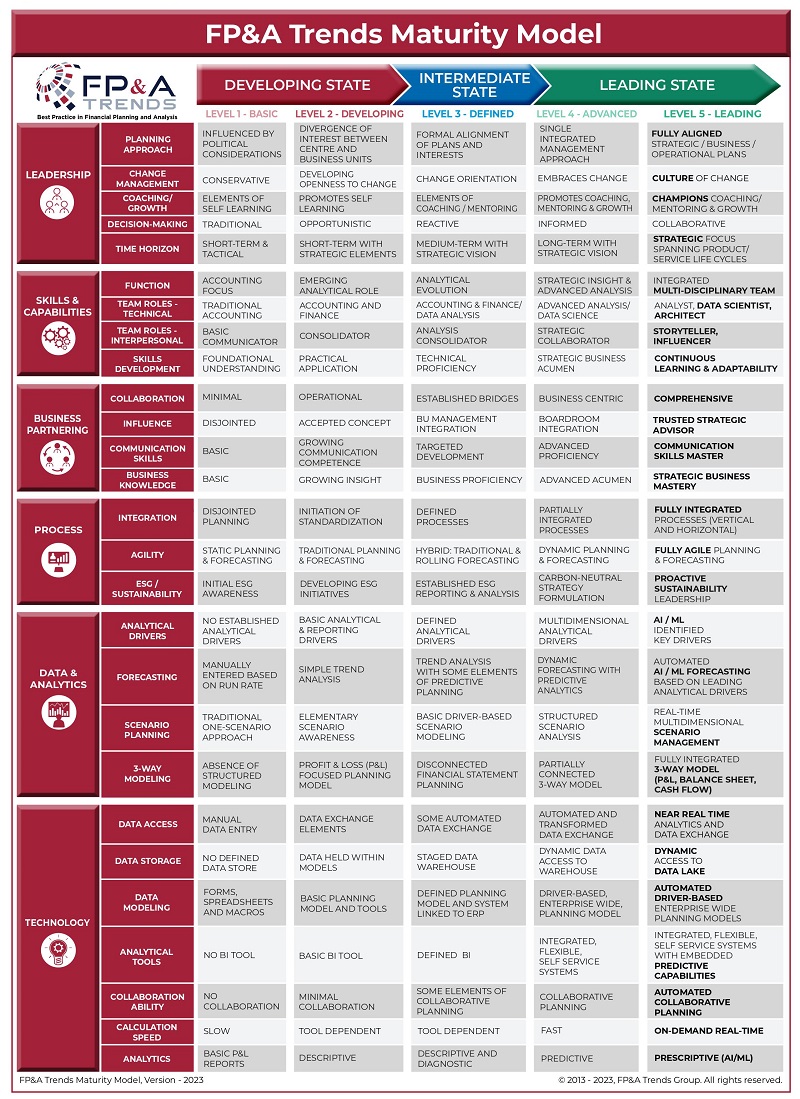
Figure 3
The forum also focused on the FP&A Maturity Model, which allows FP&A professionals to evaluate where they are on the maturity scale and tailor their transformation journey based on 6 dimensions. This benchmarking tool has being developed by thousands of finance practitioners around the globe since 2016.
Breakout Sessions and Conclusions
The event included breakout sessions that provided participants with the opportunity to discuss practical steps for reaching the leading state of maturity. These sessions were focused on three main areas: Data & Models, Systems & Processes, and People & Culture.
Data & Models
- Agreement on granularity of data is crucial for effective FP&A.
- The data model must be designed to be scalable and adaptable, allowing for growth and changes in business needs.
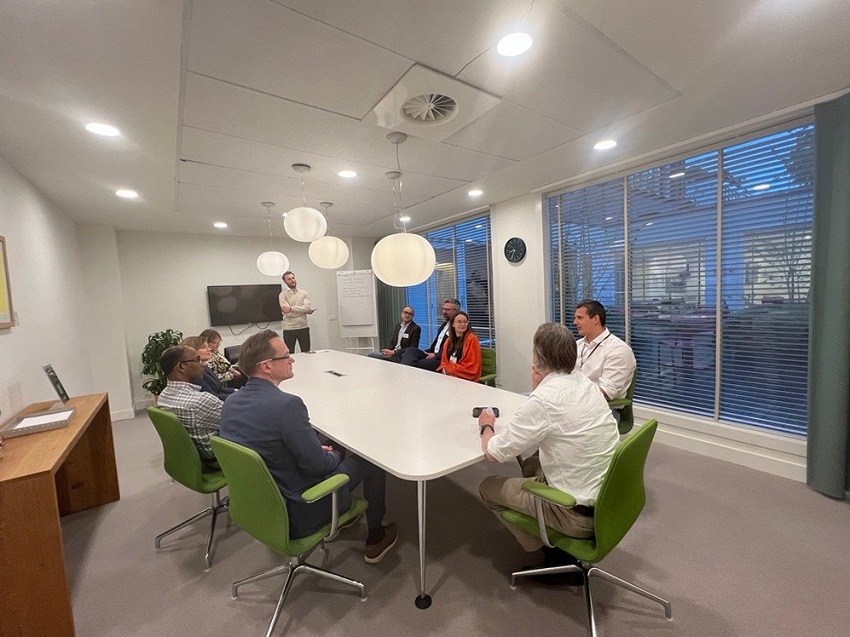
Figure 4: Group Work at Amsterdam FP&A Board №14, April 2024
Participants discussed the importance of having a clear and shared understanding of the data requirements and ensuring that the data is ready for use. The scalability and adaptability of the data model were highlighted as essential for accommodating future developments and changes in the business environment.
Systems & Processes
- Strong leadership support is essential for redefining processes and integrating new systems.
- Financial literacy and understanding business contexts are necessary for successful implementation.
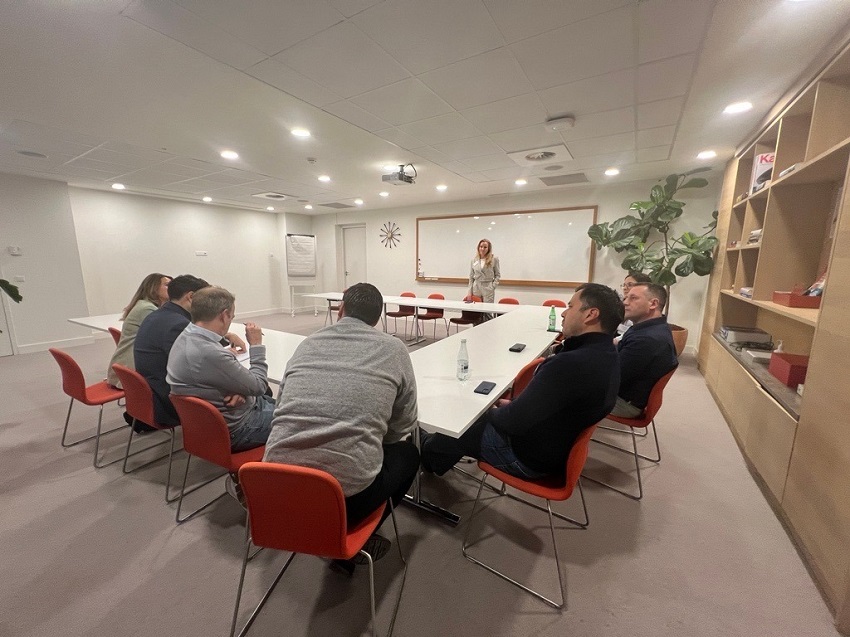
Figure 5: Group Work at Amsterdam FP&A Board №14, April 2024
The discussions emphasised the role of leadership in driving system and process changes. The participants noted that financial literacy and a deep understanding of business contexts are critical for implementing new systems and processes effectively. Stakeholder consensus on user stories and use cases throughout the end-to-end processes was also deemed necessary for successful transformation.
People & Culture
- Defining roles and required skills within the team is essential for addressing skill gaps.
- Advocacy for FP&A transformation within the organisation is critical for increasing awareness and addressing skill deficiencies.
The breakout session on people and culture focused on the human aspect of FP&A transformation. Participants discussed the importance of defining clear roles and identifying the skills needed within the team. Addressing skill gaps and advocating for FP&A transformation within the organisation were identified as crucial steps for building a supportive organisational culture. The culture should balance Strategic Planning with the independent establishment of targets, fostering an environment that supports continuous improvement and innovation.
Conclusion
The Amsterdam FP&A Board meeting was a success, providing valuable insights into the challenges and opportunities in FP&A transformation. The discussions highlighted the importance of effective Change Management, robust data management, and the attraction and retention of skilled talent. The role of technology, particularly AI/ML, was acknowledged as a game-changer, albeit one that requires careful and strategic implementation.
The breakout sessions underscored the need for a holistic approach to FP&A transformation, addressing data, systems, processes, people, and culture. Strong leadership, clear communication, and a supportive organisational culture were identified as key enablers of successful FP&A transformation.
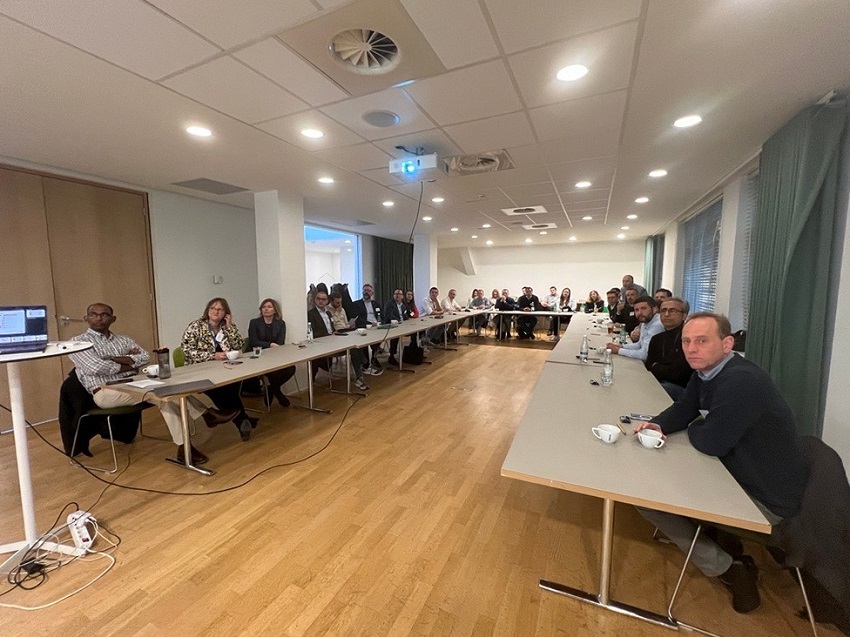
Figure 6: Amsterdam FP&A Board №14, April 2024
As the event concluded, there was a palpable sense of optimism and determination among the participants. The attendees’ collective wisdom and shared experiences provided a strong foundation for advancing FP&A functions within their respective companies. The Amsterdam FP&A Board meeting served not only as a platform for knowledge exchange but also as a catalyst for driving meaningful change in the world of FP&A.




